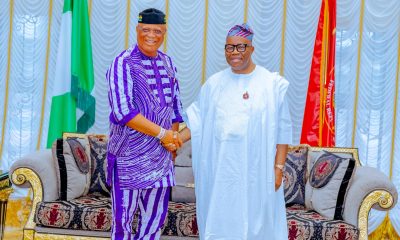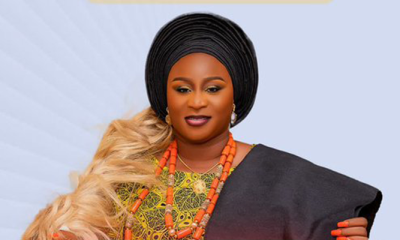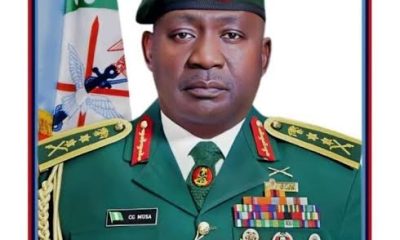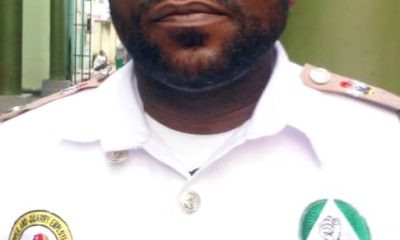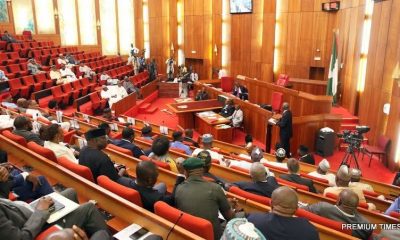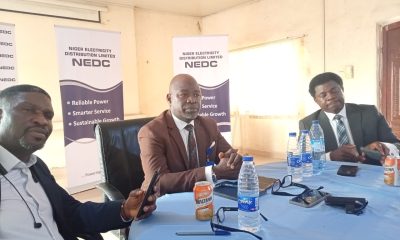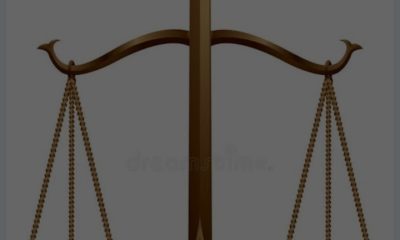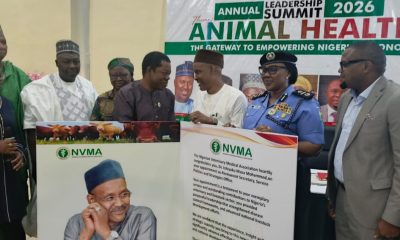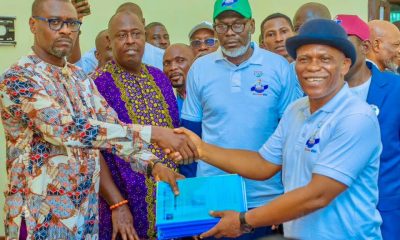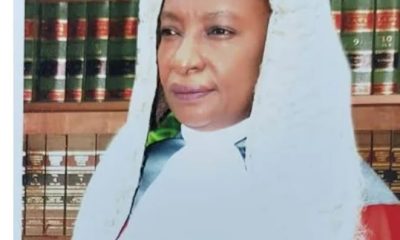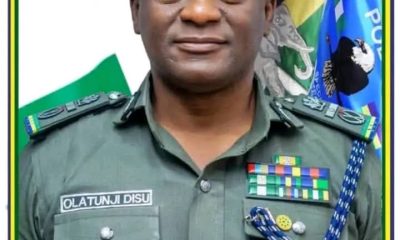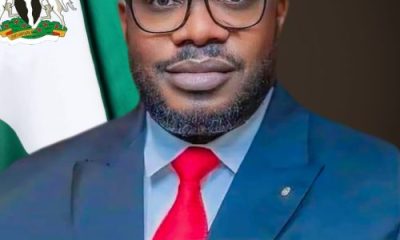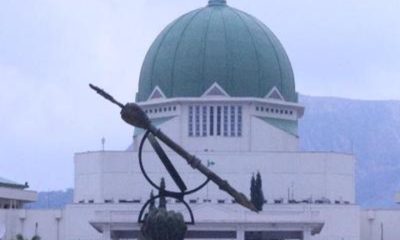Politics
Boyloaf Foundation preaches peace, tolerance, respect among youths in Niger Delta
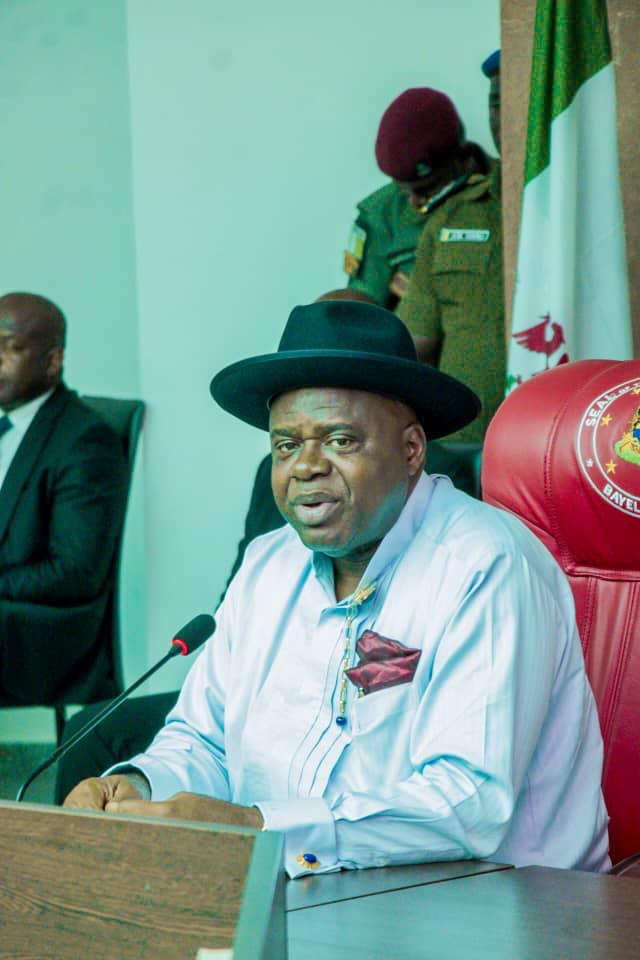
By David Owei,Bayelsa
The Boyloaf Foundation, a Non-Governmental Organisation (NGO), has called for the promotion peace and values of tolerance, respect and empathy among the youths in the Niger Delta especially the boy child.
The foundation, dedicated to non-violence advocacy and the protection of the boy child, in partnership with Miss Peace Organisation and with the support of the Bayelsa State Government, brought children and other stakeholders together to celebrate the International Day of peace with a theme, “Little Hands Big Dreams”.
The childern showcased their talents in arts, poetry, speech-making, Afro dance, drama, catwalk for peace, paintings, music, among others.
The event, which brought various young people from secondary schools, Boys Brigade and other youth organisations was part of the activities of the foundation to advocate sustainable peace and to take a collective stance against crime and violence.
In his keynote address the Bayelsa State Commissioner for Youth Development, Alfred Kemepado commended the foundation saying the event would promote peace in th le region.
He extolled the contributions of Victor-Ben Ebikabowei, popularly known as “General Boyloaf” and owner of the foundation, in the enthronement of peace in the Niger Delta.
Kemepado advised young people to shun violence and embrace peace and more importantly remained focused in pursuing their dreams.
He said that the Bayelsa State Government would soon launch a comprehensive youth policy designed to encourage active participation of youths in community development, governance, and decision-making processes.
“We aim to foster a sense of civic responsibility and leadership among young
people”, Kemepado said.
In her welcome address, the Miss Peace Niger Delta, Miss Ockiya Ayibanengimote highlighted the roles of parents in instilling values in their children.
’If our children grow up learning to tolerate differences, respect others and show empathy then we are raising a generation that will not only desire peace but also know how to protect it’’, he said.
The Director-General, Bayelsa State Centre for Youth Development, commended the Boyloaf Foundation for its consistency in peace advocacy and human development.
He said the vision of the foundation was in line with the Prosperity Administration Governor Douye Diri’s policy of inclusion, building trust and creating opportunities for people to leave harmoniously.
He said embracing dialogue, reconciliation and non-violent approaches to resolve disputes and prioritising youth empowerment remained the key to sustainable peace.
In his vote of thanks, the Coordinator of the event, Mr Seleipre Tonbie recalled the courage of General Boyloaf on the 6th of August 2009 to lead 31 commanders of the then Movement for Emancipation of Niger Delta (MEND) to Abuja to seal the Amnesty deal that restored peace in the Niger Delta.
He recalled that at the meeting, Boyloaf said: ‘’If the government refuse to develop the region and continue in marginalization and injustices the youths coming after us will be more brutal than us‘’.
He said it was in response to this looming danger that gave birth to the Boyloaf Foundation and the Boy Child Project.
Tonbie said: “Boyloaf’s bold decision to step away from violence and embrace peace inspired many others. This act of reconciliation has been immortalized in cultural consciousness abd even reflected in Barrister Smooth’s song ‘Amnesty’ and in Burna Boy’s song ‘Monsters you made’ featuring Chris Martins.
“This events led to the establishment of the presidential Amnesty programme and one of the programmes of the PAP is the scholarship scheme for impacted communities.
“A window of opportunity has presented itself to the people of our region via the Presidential Amnesty Programme and it calls for restructuring of the process, so as to enable thousands of our people benefit from the scheme”.
Tonbie thanked the stakeholders, students, youth organisations, Dr Joan Filatei, founder of the Children Development Foundation and Z Okoya Ogoniba, CEO of Events by Ozee, Moses Marlon and Aze Dickson for attending the event and appreciated the support of the Bayelsa State Government.
The PGR Entertainment Theatre for education project featured a dance drama, the Orupabo cultural display, which highlighted a message of hope and a peaceful world using dance and drama.
The event also featured a catwalk for peace by Finnie Couture, which added elegance
and style to the programme.
Politics
NEDC Strengthens Ties with Journalists to Boost Public Awareness
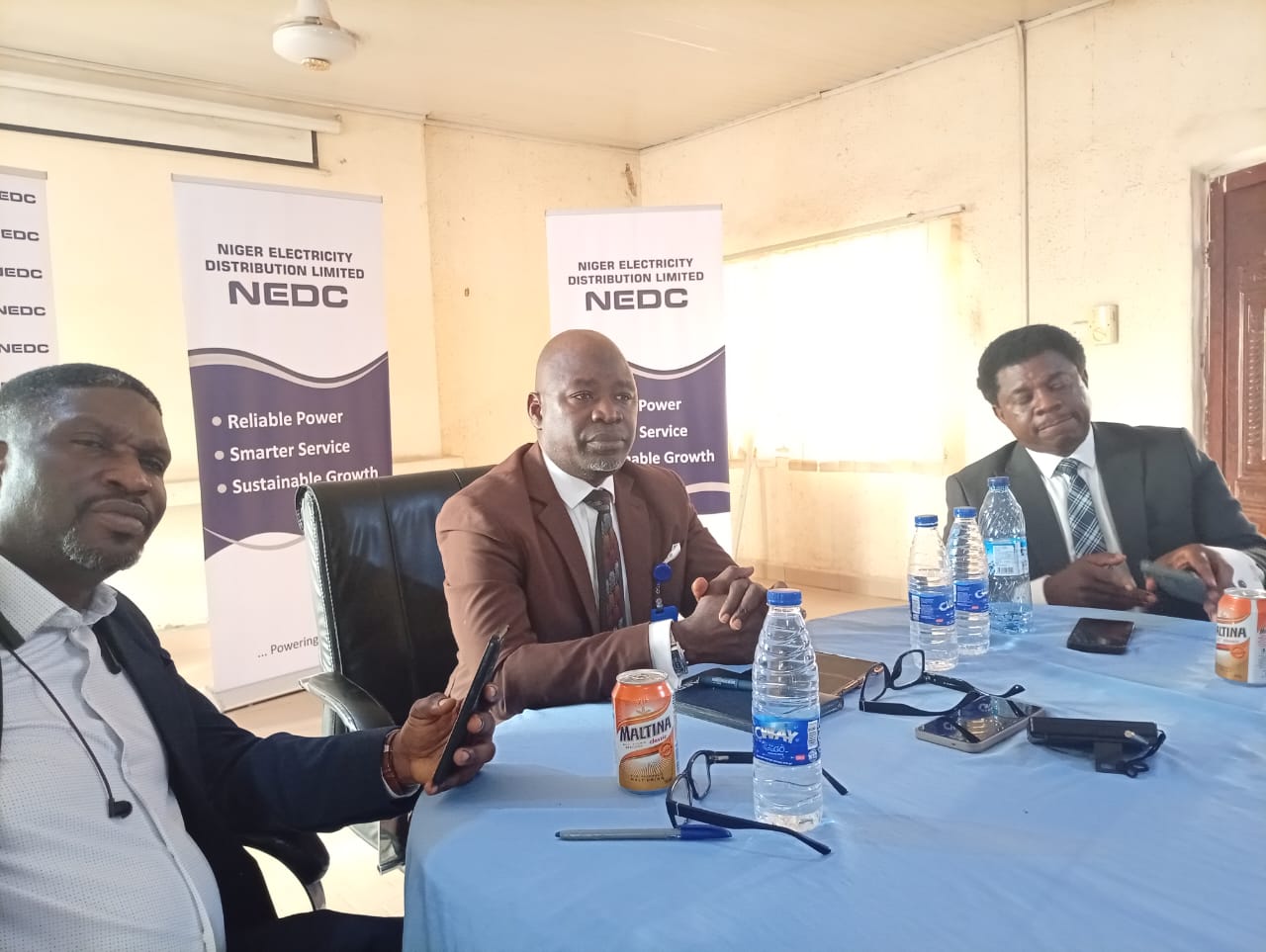
BY UTHMAN BABA-NASEER,MINNA
The Niger Electric Distribution Company Limited (NEDC) has announced plans to partner with journalists to improve development communication and increase public awareness of its activities and services.
The Managing Director of the company, Engineer Sam Odekina, made this known during a two-hour interactive session with journalists at his office.
He described the media as a key partner in progress, saying the company decided to work closely with journalists to better inform and educate the public about its operations, policies, and ongoing projects.
According to him, many electricity consumers want more information about the company’s activities. He explained that the media can serve as a reliable bridge between NEDC and its customers by providing accurate and timely information.
Engineer Odekina also described the media as the “fourth estate of the realm,” stressing its vital role in promoting transparency, accountability, and public understanding. He expressed confidence that the partnership would strengthen communication and build trust between the company and its customers.
In his remarks, the Head of Consumer Experience, Mr. Kene Ofili, appreciated the media for its contributions, noting that journalists have helped the company to properly inform and guide the public on important issues.
He appealed to journalists to always verify information with the company before broadcasting or publishing reports, to ensure accuracy and fairness.
Also speaking, the Head of Brand Marketing and Corporate Communication Mr. Omede Odekina assured journalists that the company would continue to share information about its challenges and activities so that the public can have a clearer understanding of its operations.
The interactive session highlighted the long-standing relationship between NEDC and the media and reaffirmed their commitment to working together in the interest of the public.
Politics
32 PAP Scholarship Beneficiaries Bag First Class *134 Graduate With Second-Class Upper Division *Excellent Academic Feats Impressive- Otuaro
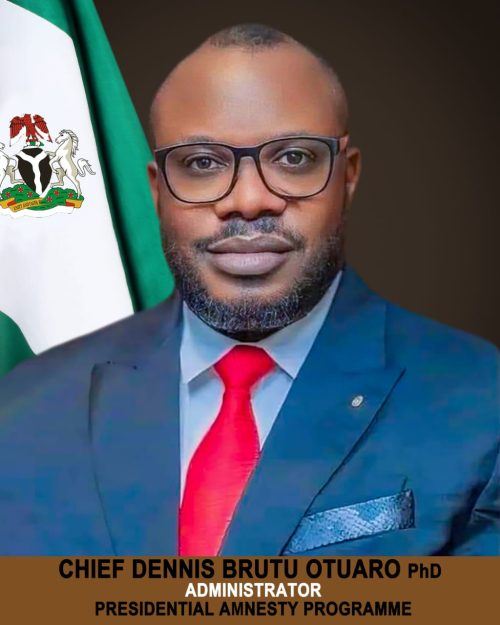
By David Owei,Bayelsa
Thirty-two students on the scholarship of the Presidential Amnesty Programme made first class in different competitive courses in 2025 at various universities in Nigeria.
No fewer than 134 of the scholarship beneficiaries also graduated with second-class upper division in various courses of study in the same year .
The courses are law, pharmacy, aeronautical engineering, cybersecurity, electrical engineering, software engineering, nursing science, mechanical engineering, architecture, accounting and criminology.
Others include computer science, anatomy, international relations and diplomacy, geography and regional planning, microbiology, public health, information technology, medical laboratory science, estate management and mass communication.
The PAP Administrator, Dr Dennis Brutu Otuaro, has commended the sponsored students under his leadership for graduating with first-class and second-class upper division grades in various disciplines.
He expressed joy over their outstanding academic performances, noting that his administration is greatly encouraged by their exemplary conduct and seriousness as shown by the quality of their academic grades.
Dr Otuaro said the scholarship beneficiaries’ excellent academic feats have formed part of the success stories of the programme in the promotion of human capital development and peace in the Niger Delta.
He stated that their sterling academic performances were a proof of the well-thought-out educational objectives of the scholarship scheme and the mandate of the PAP, stressing that it conforms with the Renewed Hope Agenda of President Bola Tinubu.
Dr Otuaro said that they had justified the investment in their education and also made the Federal Government, the PAP Office, their communities and the Niger Delta proud.
The PAP Administrator attributed the admirable academic achievements of the scholarship students to President Tinubu’s strong support for the programme and the effective supervisory role of the National Security Adviser, Mallam Nuhu Ribadu.
He called on current PAP scholarship beneficiaries in different universities to emulate their predecessors and study hard to maintain the impressive academic record.
Dr Otuaro said, “We are indeed happy with the excellent academic performances of our scholarship students in 2025. The number of beneficiaries, all from the Niger Delta, that made first-class and second-class upper division is very encouraging. We commend all of them for the great feats.
“But these commendable academic achievements indicate that we are focused on the implementation of the PAP mandate for the transformation of the Niger Delta through educational and vocational schemes.
“We express our deep appreciation to His Excellency, President Bola Ahmed Tinubu, GCFR. Without his strong support, these impressive academic feats of our scholarship students and all the success stories recorded would not have been achieved.
“We also extend our sincere gratitude to the Office of the National Security Adviser for effectively supervising the programme in line with Mr President’s Renewed Hope Agenda for the people of the Niger Delta.
“We have a listening father in Mr President who has shown it clearly in his actions that the Niger Delta is on his priority list of development. He has given priority to agencies in the region aside from the ongoing efforts in the construction of the trans-Niger Delta Highway from Lagos to Calabar.
“The people of the Niger Delta are happy with Mr President and what his administration is doing for the region, and will react in due course with the right expression of gratitude.”
Politics
Bayelsa Group Mulls Legal Actions Against Federal govt over 24 Additional LGAs,Resource Control
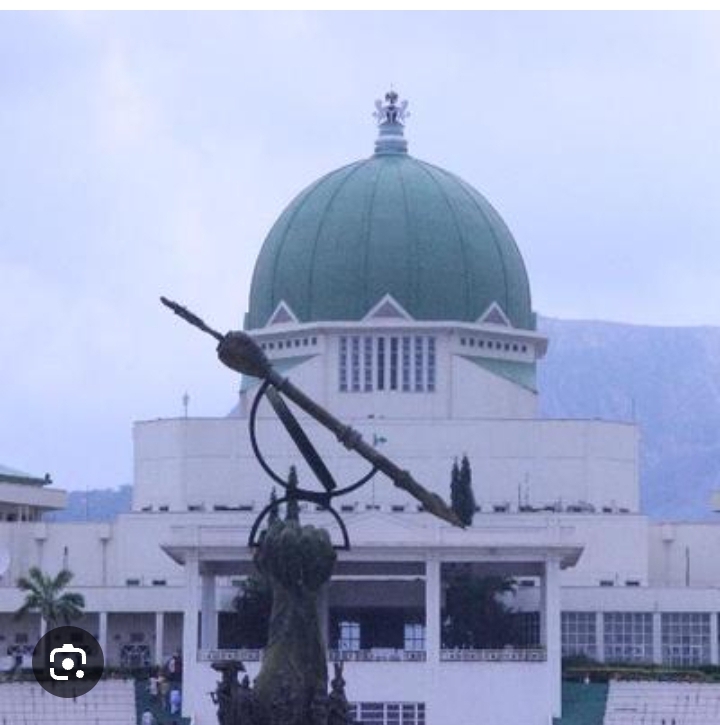
By David Owei,Bayelsa
A group under the aegis of Supreme Egbesu Assembly ( SEA ) has not only asked a law firm to sue the Federal government of Nigeria,that the National Assemblies over its failure to create or confirm the 24 additional local government areas of Bayelsa state,but has equally urged the federal government to revisit the 13% derivation principle,which they considered as lopsided and an affront on the state ,being a major oil producing state that has been contributing to the mainstay of the nation,s economy.
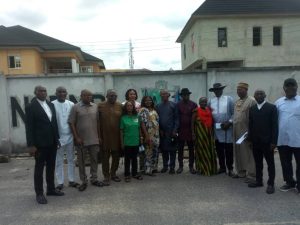
Failure to address these anomalies ,they will have no option other than to take legal actions against the federal government of Nigeria,with petitions sent to the clerk of House of Representatives and National Assembly.
The group made their grievances known in a press briefing at the Ernest Ikoli press centre ,Ekeki – Yenagoa.
According to the group,s Secretary,Dr Felix Tuodolo who was flanked by other members of the Supreme Egbesu Assembly, the national Assembly enacted the 1999 constitution which contained the provision of sections ,4,7 and 8 of the 1999 constitution as amended relating to the alteration of the 1999 constitution and creation of additional local government areas of Bayelsa state and that Bayelsa state was created a long side Eboyin ,Ekiti,Gombe,Nasarawa and Zamfara state,among states that were created in 1999,it’s only Bayels state that has the smallest number of local government with just eight local government areas.
That Nasarawa state for instance has 13 local government areas,Eboyin state has 13 local government areas, Gombe state has 24 local government areas,Zamfara state has 14 local government areas and Bayelsa state has 8 local government areas and that the creation of Bayelsa state with just 8 local government areas creates a clear imbalance both in governance and distribution of revenue allocation to states of the federation.
That the situation however informed the creation of additional 24 local government areas by the government of Bayelsa state duly to the gross injustice and the Bayelsa state House of Assembly in compliance with section 7 of the constitution of the federal republic of Nigeria 1999( as amended) approved and signed into law the said 24 local areas and since then all attempts to approve the 24 additional local government areas for Bayelsa state has proved abortive.
Speaking further,Dr Felix Tuodolo, the immediate past Commissioner for Ijaw National Affairs,posited that recently the National Assembly held it’s zonal constitutional conference for the proposed amendment of the 1999 and the Supreme Egbesu Assembly presented it’s position paper demanding for the creation of additional local government areas for Bayelsa state,and despite the continuous demand by the people of Bayelsa state ,the National Assembly has constantly refused to accede the sincere complains,hence they had contacted the services of E.K Okorodas and Co to sue the federal government.
The group also sued the Federal government of Nigeria,saying that the National Assembly enacted the 1999 constitution of the federal republic of Nigeria ,with the provisions of section 44(3) and section 1
62(2) relating to the acquisition ,revenue formula and distribution of revenues derived from natural resources from states in the federation and the said section 44 (3) of the 1999 constitution as amended gives ownership of entire property in and control of all minerals, mineral oils and gas in order or upon any land in Nigeria or in,under or upon any land in Nigeria or in,under or upon the territorial waters and exclusive economic zone of Nigeria to the Government of federation.
Other members of the group that added their voices were Mr Ebi Waribigha and Ms Primrose Oringeriya – Kpokopsei,decrying the injustices,marginalization that federal government has metted on Bayelsa state as far as the creation of additional local government areas and resource control were concerned.
Speaking to journalists earlier,Bar Ebinabo Kenneth Okorodas, in the interest of justice,they demand on behalf of their clients,that they cause an amendment of part 1 of the first schedule of the 1999 constitution to reflect the 24 additional local government areas of Bayelsa state and in the interest of justice,they also demand on behalf of their clients,that the National Assembly delete section 44 (3) and section 162 (2) of the 1999 constitution to reflect states control of her natural resources and pays an agreed percentage to the federal government in line with the spirit and letter of sovereignty,an failure to comply with this demand within 21 days from the date of such service of this notice shall result in commencement of legal proceedings without further notice.
-

 Politics6 months ago
Politics6 months agoASUU-NDU protest against FG loans, unpaid salaries,Non-Implementation of agreements …..says loans is generational slavery
-
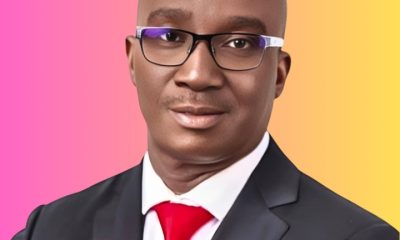
 Politics9 months ago
Politics9 months agoGov Okpebholo moves to end Cultism *Threatens action against leading cult groups *Vows to demolish more cult houses in Edo State
-

 Business & Economy6 months ago
Business & Economy6 months agoPC-NCG Issues Disclaimer on Purported Nigerian Coast Guard National Orientation Exercise In Anambra State
-

 Entertainment2 years ago
Entertainment2 years agoJubilation galore as Parishioners of CKC Kurudu celebrate their cultural heritage ….FG should exploit our Cultural heritage to unite Nigerians-Rev Fr Dim
-

 General News2 years ago
General News2 years agoReps hold public hearing on FMC Ugwuaji Awkunanaw
-

 General News2 years ago
General News2 years agoCelebration galore as UDA Successfully Elected New Exco ……I will digitalize processes that will raise UDA to greater height -Comr. Okejiri
-

 Law & Crime8 months ago
Law & Crime8 months agoICPC pledges to collaborate with FIDA to end Sex for Marks in tertiary institutions
-

 Law & Crime7 months ago
Law & Crime7 months agoLegal practitioner raises alarm over threat to his life by CSP Muhammed Abdulkareem

